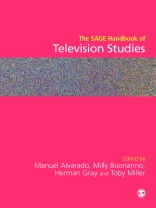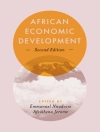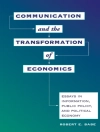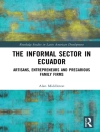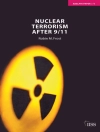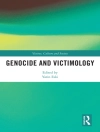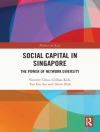‘Genuinely transnational in content, as sensitive to the importance of production as consumption, covering the full range of approaches from political economy to textual analysis, and written by a star-studded cast of contributors’
– Emeritus Professor Graeme Turner, University of Queensland
’Finally, we have before us a first rate, and wide ranging volume that reframes television studies afresh, boldly synthesising debates in the humanities, cultural studies and social sciences…This volume should be in every library and media scholar’s bookshelf.’
– Professor Ravi Sundaram, Centre for the Study of Developing Societies
Bringing together a truly international spread of contributors from across the UK, US, South America, Mexico and Australia, this Handbook charts the field of television studies from issues of ownership and regulation through to reception and consumption.
Separate chapters are dedicated to examining the roles of journalists, writers, cinematographers, producers and manufacturers in the production process, whilst others explore different formats including sport, novella and soap opera, news and current affairs, music and reality TV. The final section analyses the pivotal role played by audiences in the contexts of gender, race and class, and spans a range of topics from effects studies to audience consumption.
The SAGE Handbook of Television Studies is an essential reference work for all advanced undergraduates, graduate students and academics across broadcasting, mass communication and media studies.Inhoudsopgave
PART 1: OWNERSHIP AND REGULATION
How to Study Ownership and Regulation – Des Freedman
Regulation and Ownership in the United States – Allison Perlman
Television in Latin America: From Commercialism to Reform? – Martin Becerra, Guillermo Mastrini and Silvio Waisbord
Ownership and Regulation of Television in Anglophone Africa – Ruth Teer-Tomaselli
Ownership and Regulation in Europe – Stylianos Papathanassopoulos
International Regulation and Organizations – Paschal Preston and Roderick Flynn
Television in India: Ideas, Institutions and Practices – Arvind Rajagopal
Mexican Research on TV: A Tradition Framed By a Powerful Quasi-Monopolistic TV System – Guillermo Orozco
PART 2: MAKERS AND MAKING
How to Study Makers and Making – Miranda J. Banks
The Division of Labour in Television – Michael Curtin and Kevin Sanson
From Network to Post-Network Age of US Television News – Oliver Boyd-Barrett
Hollywood Story: Diversity, Writing and the End of Television As We Know It – Darnell Hunt
Television Cinematography – Deborah Tudor
Options and Exclusivity: Economic Pressures on TV Writers′ Compensation and the Effects on Writers’ Room Culture – Felicia D. Henderson
A Greener Screening Future: Manufacturing and Recycling as the Subjects of Television Studies – Vicki Mayer and Clare Cannon
PART 3: CULTURAL FORMS
Television Program Formats: Their Making and Meaning – Albert Moran
Cultural Forms of Television: Sport – David Rowe
Latin American Telenovelas: Affect, Citizenship and Interculturality – André Dorcé
Television News and Current Affairs – Kathleen M. Ryan, Lisa Mc Laughlin and David Sholle
Music on Television – Matthew Delmont
Reality Television – Mark Andrejevic
Television Drama – Jason Jacobs
Sperm Receptacles, Money-Hungry Monsters and Fame Whores: Reality Celebrity Motherhood and the Transmediated Grotesque – Brenda R. Weber and Jennifer Lynn Jones
PART 4: AUDIENCES, RECEPTION, CONSUMPTION
From The Networks to New Media: Making Sense of Television Audiences – Laura Grindstaff
Effects and Cultivation – Michael Morgan, Jim Shanahan and Nancy Signorielli
Active Audiences and Uses and Gratifications – Helen Wood
Raced Audiences and the Logic of Representation – L.S. Kim
Classed Audiences in the Age of Neoliberal Capitalism – Mike Wayne
Over de auteur
Toby Miller is a British-Australian-US interdisciplinary social scientist. He is the author and editor of over 30 books, has published essays in more than 100 journals and edited collections, and is a frequent guest commentator on television and radio programs. His teaching and research cover the media, sports, labor, gender, race, citizenship, politics, and cultural policy, as well as the success of Hollywood overseas and the adverse effects of electronic waste. Miller′s work has been translated into Chinese, Japanese, Swedish, German, Turkish, Spanish and Portuguese. He has been Media Scholar in Residence at Sarai, the Centrefor the Study of Developing Societies in India, Becker Lecturer at the University of Iowa, a Queensland Smart Returns Fellow in Australia, Honorary Professor at the Center for Critical and Cultural Studies, University of Queensland, Can West Visiting Fellow at the Alberta Global Forum in Canada, and an International Research collaborator at the Centre for Cultural Research in Australia.
